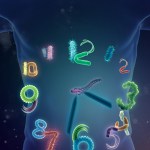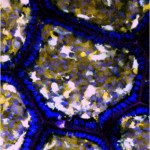gut microbiota
To all bits of clockwork that are adjusted in our bodies according to our day-night timetable, we can now add two more: cancer growth and the schedules of our internal complements of bacteria.
Cancer, according to a new Weizmann Institute study, may grow and spread more at night. In this scenario, our cells are getting messages left and right, day and night, and taking them in through the specialized receptors on their outer membranes. During the daytime, our bodies produce natural “wake-up” hormones, and these apparently, take precedence over other incoming messages, their receptors…
Poetry is finding its way into our consciousness at the Weizmann Institute: At the recent, fourth annual Science on Tap evening, which the Institute hosts in Tel Aviv, several poets joined in the fun, reading from their work before and after the talks given by scientists in over 60 filled-to-capacity pubs and cafes around the city. And calls have gone out for entries to the Ofer Lider creative writing contest – open to scientists (writing in Hebrew). The contest is named for Prof. Ofer Lider, an Institute scientist who, sadly, died young and who wrote poetry because he believed that…
What would you say are the strongest three factors associated with the salaries of major-league baseball players? According to a popular, well-established algorithm, the main influential factors are walks, intentional walks and runs batted in.
How much does he earn?
But a paper recently published in Science reports on a new data analysis tool, which is able to find interesting relationships and trends in complex data sets - relationships that are invisible to other types of statistical analyses.
This could be a big deal: Large data sets with thousands of variables are increasingly common in…


